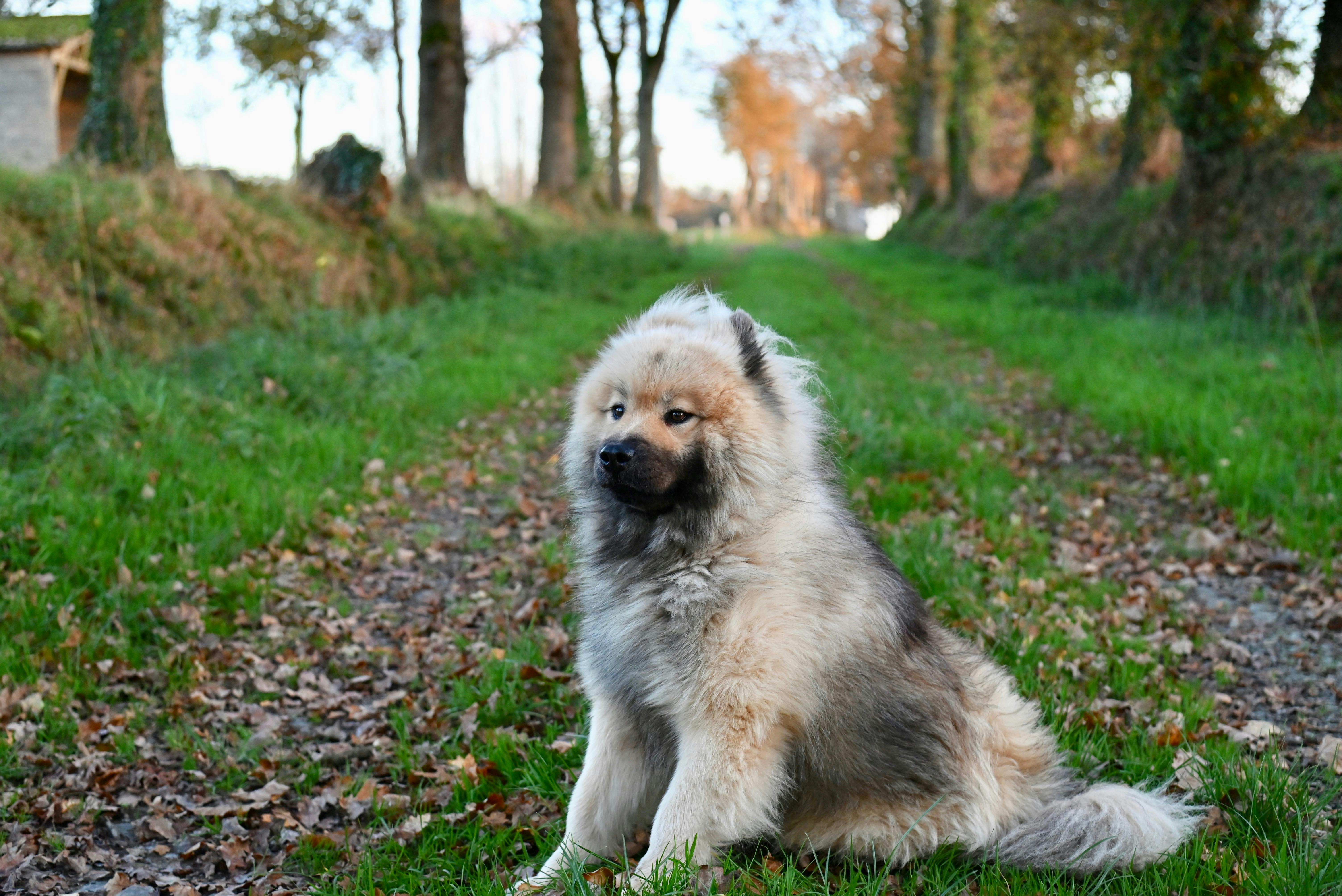Have you ever wondered whether it’s safe for dogs to eat radishes? Well, I’m here to provide you with all the information you need. In this article, we will explore the question “Can dogs eat radishes?” and delve into the health benefits and potential risks associated with feeding radishes to our furry friends. With engaging and informative content, as well as SEO and NLP optimization, this article will ensure you have a comprehensive understanding of whether radishes can be a part of your dog’s diet. So, let’s dive into this crunchy and nutritious vegetable and find out if it’s a safe choice for our beloved canine companions.

Understanding Your Dog’s Diet
As a responsible pet owner, it is crucial to have a good understanding of your dog’s diet to ensure their overall health and well-being. This includes knowing the essential nutrients that should be present in their food and being aware of what human foods are safe for them to consume. By familiarizing ourselves with these aspects, we can make informed decisions about what to feed our furry friends.
Knowing Essential Dog Food Nutrients
Just like humans, dogs require a well-balanced diet that provides all the necessary nutrients for their growth and development. The essential nutrients for dogs include proteins, carbohydrates, fats, vitamins, and minerals. Proteins are essential for building and repairing tissues, while carbohydrates provide energy. Fats play a crucial role in maintaining healthy skin and coat. Vitamins and minerals are important for various bodily functions and overall immune health. It is important to choose dog food that contains a proper balance of these nutrients to ensure our dogs remain healthy and active.
Comprehending Dogs and Human Food
While sharing a meal with our furry companions might seem tempting, it’s important to understand that not all human food is safe for dogs. Some human foods can be toxic or cause digestive issues in dogs. It’s vital to be aware of what foods are safe and beneficial for our dogs to consume. Now, let’s explore one specific food item – radishes – and whether they can be a part of a dog’s diet.
Overview of Radishes
Radishes are a popular root vegetable that comes in various colors, shapes, and sizes. They are known for their crisp texture and peppery flavor, making them a versatile addition to many culinary dishes. But what exactly is the nutritional composition of radishes, and what benefits can they offer our furry friends?
Nutritional Composition of Radishes
Radishes are low in calories, making them a great option for dogs who need to watch their weight. They are also a good source of dietary fiber, which aids in digestion and helps regulate bowel movements. Radishes are rich in vitamins C and K, which can help boost the immune system and support healthy blood clotting, respectively. Additionally, radishes contain minerals such as potassium, calcium, and manganese, which are essential for various physiological functions in dogs.
Different Types of Radishes and Their Benefits
When it comes to radishes, there is a wide variety to choose from. Some common types include daikon radishes, black radishes, and cherry belle radishes. Each type offers its unique set of benefits. Daikon radishes, for example, are high in antioxidants and can aid in digestion. Black radishes are known for their strong flavor and potential anti-cancer properties. Cherry belle radishes, on the other hand, are milder in taste and are a good source of vitamin C. By incorporating different types of radishes into your dog’s diet, you can provide them with a diverse range of nutrients.

Can Dogs Eat Radishes
Now that we have a better understanding of radishes, let’s explore whether they are safe for our canine companions to consume. To answer this question, let’s take a look at it from a vet’s perspective and consider the factors to consider when feeding your dog radishes.
Radishes and Dogs: From a Vet’s Perspective
According to veterinarians, radishes can be safe for dogs to eat in moderation. However, it is essential to introduce them gradually into your dog’s diet and monitor their reaction to ensure they don’t experience any adverse effects. While radishes can provide certain health benefits, it’s important to remember that they should not be the primary source of nutrition for your dog. Radishes should only be considered as an occasional treat or addition to their regular diet.
Factors to Consider when Feeding Your Dog Radishes
When deciding to feed your dog radishes, there are several factors to consider. Firstly, ensure that your dog is not allergic to radishes or any other ingredients present in them. Secondly, it’s crucial to prepare radishes in a way that makes them safe and easily digestible for your dog. Cutting radishes into smaller, bite-sized pieces or steaming them can help make them more palatable and easier to chew. Lastly, always consult with your veterinarian before making any significant changes to your dog’s diet.
Proper Way of Feeding Radishes to Dogs
If you’ve decided to incorporate radishes into your dog’s diet, it’s important to know the proper way to prepare and serve them. By following these guidelines, you can ensure a safe and enjoyable experience for your furry friend.
Preparing Radishes for Your Dog
Before feeding radishes to your dog, it’s crucial to thoroughly wash them to remove any dirt or pesticide residues. If your radishes come with leaves, make sure to remove them as they can be harmful to dogs. Cutting radishes into small, manageable pieces or grating them can make them easier for your dog to chew and digest.
Ideal Servings of Radishes for Dogs
When it comes to serving radishes to your dog, moderation is key. A good rule of thumb is to start with small portions, especially if it’s their first time trying radishes. Begin with one or two small pieces and observe how your dog reacts. If there are no negative effects, you can gradually increase the serving size but still keep it in moderation. Remember that radishes should not make up more than 10% of your dog’s overall diet.
Monitoring Your Dog After Eating Radishes
After your dog has consumed radishes, it’s important to monitor them for any signs of adverse reactions or digestive issues. Keep an eye out for symptoms such as vomiting, diarrhea, or excessive gas. If you notice any of these symptoms, it’s best to discontinue feeding radishes to your dog and consult with your veterinarian.

Health Benefits of Radishes for Dogs
While radishes should not be a staple in a dog’s diet, they do offer some health benefits when consumed in moderation. Let’s explore some of these benefits in more detail.
Antioxidants in Radishes
Radishes are rich in antioxidants, such as anthocyanins and vitamin C, which can help combat oxidative stress and prevent cell damage in dogs. Antioxidants play a vital role in supporting the immune system and protecting against various diseases.
Radishes and Digestion in Dogs
The high fiber content in radishes can aid in digestion and promote regular bowel movements in dogs. Including radishes as a part of a well-balanced diet can help prevent constipation and other digestive issues.
Effects on Dog’s Dental Health
Chewing on radishes can provide some dental benefits for dogs. The action of gnawing on radishes can help remove plaque and tartar buildup, promoting better oral health. However, it’s important to note that radishes should not replace regular dental care practices, such as brushing your dog’s teeth.
Possible Side Effects of Radishes on Dogs
While radishes can offer various health benefits, it’s essential to be aware of the potential side effects they may have on dogs. Understanding these side effects can help you make informed decisions about including radishes in your dog’s diet.
Digestive Issues and Radishes
Some dogs may have difficulty digesting radishes, especially if they are fed in large quantities or if the dog has a sensitive stomach. Consuming too many radishes can lead to gastrointestinal distress, such as stomach upset, diarrhea, or gas. If your dog shows any signs of digestive issues, it’s best to reduce or eliminate radishes from their diet.
Allergic Reactions from Radishes in Dogs
Just like humans, dogs can develop allergies to certain foods, including radishes. Signs of an allergic reaction may include itching, skin rashes, swelling, or breathing difficulties. If you suspect your dog has an allergic reaction after consuming radishes, seek veterinary advice immediately.
Avoiding Overfeeding of Radishes
It is important to avoid overfeeding radishes to your dog. While radishes can provide certain health benefits, excessive consumption can lead to an imbalance in their overall diet. Radishes should only be given as an occasional treat or supplement to their regular meals.
Can Dogs Eat All Types of Radishes
Now that we know that radishes can be included in a dog’s diet in moderation, let’s explore specific types of radishes and whether they are safe for dogs to consume.
Daikon Radishes and Dogs
Daikon radishes, often used in Asian cuisine, are safe for dogs to consume, provided they are introduced in small amounts and monitored for any adverse reactions. Daikon radishes can provide additional nutrients and health benefits due to their high antioxidant content.
Black Radishes and Dogs
Black radishes have a stronger flavor than other varieties and contain compounds that may have beneficial effects on human health. While black radishes are not toxic to dogs, their strong flavor may be off-putting to some dogs. Introduce black radishes cautiously and in small amounts to see if your dog enjoys them.
Cherry Belle Radishes and Dogs
Cherry Belle radishes are a milder variety and may be more palatable for dogs. They are a good source of vitamin C and can be a refreshing addition to your dog’s diet. As always, start with small servings and monitor your dog’s response.
Can Dogs Eat Cooked Radishes
While dogs can eat radishes, it’s essential to consider whether cooked radishes are safe for them as well. Cooking can alter the nutritional composition and texture of radishes, potentially affecting their suitability for dogs.
Effects of Cooking on Radishes
Cooking radishes can soften their texture, making them easier for dogs to chew and digest. However, it’s important to note that certain cooking methods, such as boiling or frying, may result in a loss of some nutrients. Steaming or lightly sautéing radishes can help retain more of their beneficial compounds while making them more palatable for your dog.
Recommended Cooking Methods for Radishes for Dogs
If you choose to feed your dog cooked radishes, opt for gentle cooking methods like steaming or lightly sautéing. Avoid using excessive oils, seasonings, or spices as they may not be well-tolerated by dogs. Remember, cooking radishes should be done in moderation and should not replace their regular diet.
Alternatives to Radishes for Dogs
If radishes are not your dog’s cup of tea or if you want to provide them with a variety of healthy options, there are several other vegetables and fruits that you can safely incorporate into their diet.
Vegetables Dogs Can Eat Safely
Many vegetables can be a healthy addition to your dog’s diet. Some safe options include carrots, green beans, broccoli, sweet potatoes, and spinach. Just like with radishes, introduce new vegetables gradually and monitor your dog’s response.
Fruits Dogs Can Eat Safely
Certain fruits can also be a tasty and nutritious treat for your dog. Some safe fruits include apples, bananas, blueberries, watermelon, and strawberries. As with any new food, introduce fruits slowly and in small portions to avoid any gastrointestinal upset.
Final Thoughts on Dogs and Radishes
In conclusion, radishes can be included in a dog’s diet in moderation, provided they are prepared and served correctly. They offer various health benefits, such as providing antioxidants, aiding digestion, and supporting dental health. However, it’s important to monitor your dog for any adverse reactions and avoid overfeeding radishes. Always consult with your veterinarian before making any significant changes to your dog’s diet and consider incorporating a variety of safe vegetables and fruits to provide a well-rounded and nutritious diet. With proper knowledge and guidance, you can make informed choices that contribute to your dog’s overall health and happiness.




